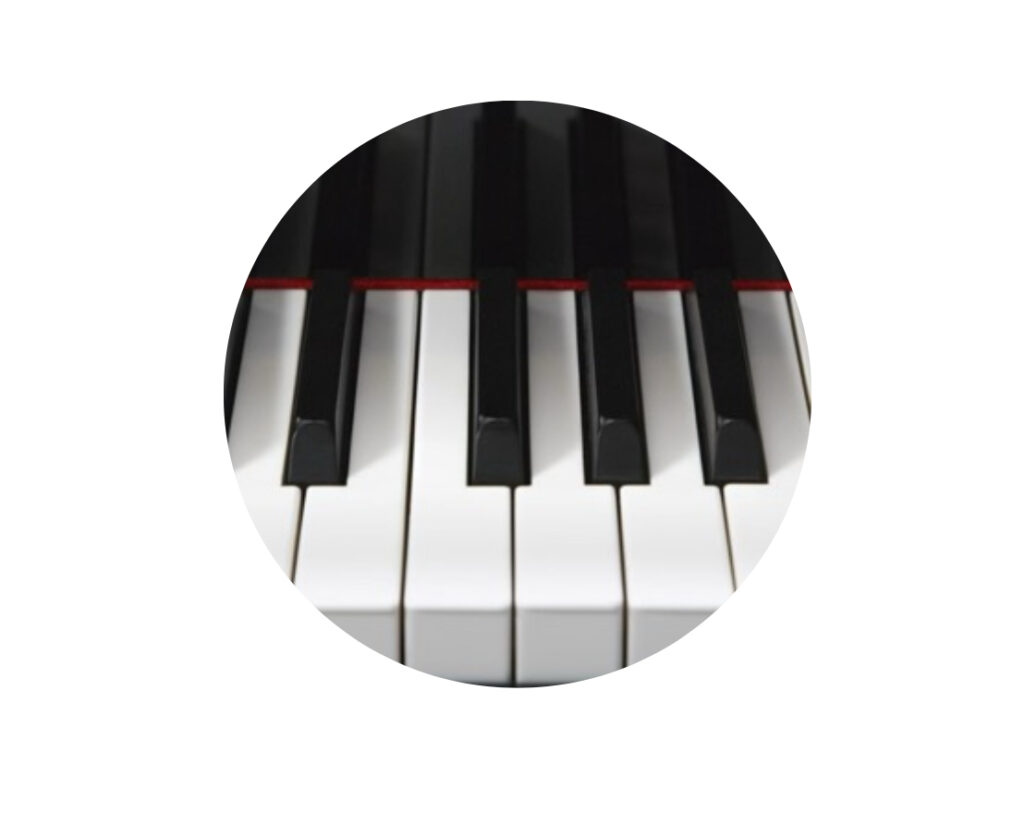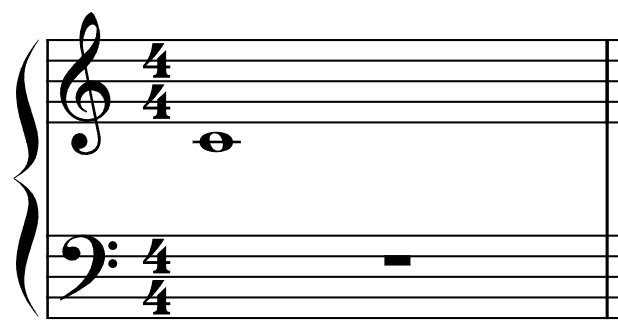
This is where you apply what you’ve learned about the lines and spaces.
The piano keyboard has 88 keys that repeat themselves in patterns. You’ll see groups of black keys in sets of two and three notes.

Above: The highlighted keys are C to B and repeat themselves. The pic above is not the entire keyboard. Also for now, we will ignore the black keys. I go into greater detail about them on the next page, linked below.
The easiest way to remember the notes is to use the Middle C anchor, and count notes up and down the keyboard.
The note “C” is found to the left of the two black keys, and there are 8 “C notes” on the keyboard.
Using the musical alphabet, we count up “C, D, E, F, G, A, B” one note at a time. Then the pattern repeats itself, starting again with C.
Important! — The musical staf contains all the notes you see on the keyboard, and the keyboard contains all the note names you see on the musical staf.
When you see this note, middle C, you know to play the key on the piano that is also middle C.

This same logic applies to all the keys and notes. If you see the score below, you’d play the notes C, D, E, F, G on the piano keyboard, in order, since these notes represent the keys on the piano.

Your assignment is to find all the notes on the piano keyboard, label them if you need, use a dry erase market to write the names on the keys if you want to.
After a little while, you won’t need the reminders. You will simply be able to find every A, B, C, D, E, F, G on the keyboard, and associate the keys with the written notes on the score.
Next, let’s find out why the black keys are there, and what they do.
